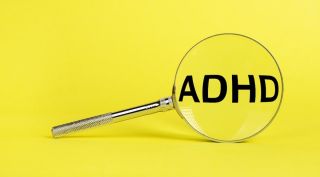ADHD
How ADHD in Adults Impacts Anger Arousal
There are many factors that make adults with ADHD vulnerable to anger arousal.
Posted March 27, 2023 Reviewed by Devon Frye
Key points
- Adults with ADHD have a greater tendency to anger arousal than those without such symptoms.
- Those with high level of symptoms of ADHD are more likely to have deficiencies in emotional regulation.
- Adults high in ADHD symptomatology have a greater challenges in social perception.
- A detailed inquiry is essential to determine the possible contribution of ADHD when working with adults prone to anger.
According to a study of 5,282,877 adult participants in the Kaiser Permanente Northern California health plan, the prevalence of attention-deficit/hyperactivity disorder (ADHD) in adults, increased by 123 percent between 2007 and 2016 (Chung, Jiang & Paksarian, 2019). In general, the presence of other psychiatric diagnoses was found to be highly associated with the likelihood of adult ADHD diagnosis.
A diagnosis of adult ADHD is based on having symptoms that include: inattention, lack of focus, poor time management, weak impulse control, exaggerated emotions, hyperfocus, hyperactivity, and executive dysfunction; symptoms should have appeared before age 12 (DSM, 2013). Such dysfunction implies a weakness in cognitive processing that organizes thoughts and activities, prioritizes tasks, manages time efficiently, and is active in decision-making.
Extensive research indicates that adults with ADHD tend to experience a propensity for anger arousal. Such research has identified a complex interaction of factors that may contribute to this tendency.
Adult ADHD and a Propensity for Anger
In one study of adults with ADHD, 70 percent indicated experiencing emotional lability (Skirrow & Asherson, 2013). It should also be noted that adults with ADHD have a higher prevalence of anxiety disorders as well (Quenneville, Kalogeropoulou, Nicastro, et. al., 2022). When this is the case, they experience higher levels of anger. With regard to romantic relationships, a study of 125 males who reported childhood ADHD found that they were more prone to be verbally aggressive and violent with their partner than those without ADHD (Wymbs, Molina, Waschbusch, et. al., 2011).
College students with more severe ADHD symptoms have been found to experience more driving anger and display it in more hostile and aggressive ways. They are more aggressive and risky on the road, experience more crash-related outcomes, and are generally angrier (Richards, Deffenbacher, & Rosen, 2002). Another study of college students found that having a higher level of ADHD symptoms correlated with higher levels of state and trait anger and increased social impairment (Sacchetti & Lefler, 2014).

While having ADHD symptoms as a child can influence the degree of anger as an adult, it appears that having a high degree of such symptoms may be more associated with adult anger. This was supported by a study that found that those with elevated ADHD symptoms as an adult reported higher rates of intimate partner violence perpetration (Wymbs, Dawson, Sacchetti, et. al., 2016)
It should also be noted that individuals with ADHD may also be prone to directing their anger inward. In one study of 1,203 people (46 percent with a self-reported diagnosis of ADHD), it was found that those high in ADHD traits showed significantly lower self-compassion and higher perceived criticism than those without ADHD (Beaton, Sirois, & Milne, 2020).
Perfectionism is often explained as a defensive strategy for dealing with underlying feelings of shame. Such perfectionism includes a quickness to be self-critical and similarly, the avoidance of engaging in new situations that might trigger such feelings. This was further supported in a study in which 30 adults with ADHD were asked to respond to an inventory of cognitive distortions. Those with ADHD most frequently reported perfectionism (Strohmeier, Rosenfield, DiTomasso, et., al., 2016).
There is a wealth of research that has tried to identify specific variables that lead to an association between ADHD and the tendency to anger arousal. Emotional self-regulation has been a major target of such investigation.
Deficiency in Emotional Self-Regulation
Research has found that individuals with ADHD evidence a greater deficiency in emotional self-regulation (DESR) than is common for most adults (Biederman, DiSalvo, Woodworth, et. al., 2019). Additionally, such difficulties in self-regulation are also associated with a higher level of psychopathology than those with low DESR.
Individuals with a reduced capacity to regulate their emotions are more likely to react to, rather than respond to, those negative feelings that trigger anger—i.e., fear, anxiety, devaluation, shame, depression, and powerlessness. Difficulties in emotional regulation imply a reduced capacity to pause and sit with and reflect on these feelings rather than impulsively reacting to them.
Such reflection is essential for the practice of healthy rather than destructive anger. In fact, some studies report that adults with ADHD have difficulty accepting their own emotions, thus leading to emotional avoidance (Edel, Rudel, Hubert, et. al., 2010). Anger is often a consequence of avoiding the experience of those negative feelings that trigger it.
In effect, symptoms associated with adult ADHD involve both impulsivity and diminished control of the rational mind over the emotional mind. It is then understandable that childhood behavior ratings of “impulsivity,” “losing control,” and “trouble with authority,” were found to be strongly predictive of adult ADHD (Lundervold, Halmoy, Nordby, et. al., 2020).
Emotional dysregulation involves deficits in inhibiting one’s reactions and consequently leads to impulsivity. One study suggests it may entail one of two deficits: “interference suppression, responsible for controlling interference by resisting irrelevant or misleading information, and response inhibition, referring to withholding a response or overriding an ongoing behavior.” (Coutinoho, Santos Reis, Geraldo da Silve, et. al., 2018). This study also suggested that the difficulties in awareness and self-monitoring undermine an individual’s capacity to inhibit inadequate responses.
The accumulation of negative experiences for individuals with ADHD leads to diminished self-esteem, self-efficacy, and resilience for coping. It is then understandable that they may also direct their anger inward in the form of self-criticism that only intensifies their feelings of shame and irritability. Such criticism is also associated with the lower self-compassion experienced by those with ADHD (Beaton, Sirois, & Milne, 2020).
Impact of Challenges to Social Perception
Some research emphasizes challenges to social perception that may underly some of the cognitive and emotional challenges of those with ADHD. For example, individuals with ADHD often have difficulty recognizing emotions in facial expressions (Yuill & Lyon, 2007). They are found to require more time and make more errors when trying to discern emotions such as sadness, disgust, or anger (Bal, 2011).
One study found a correlation between attention deficits and difficulty to identify anger in children with ADHD (Tehrani-Doost, Noorazar, Shahrivar, et. al., 2017). Additionally, several studies have found that adults with ADHD have a deficit in inferring other people’s beliefs or desires (Hutchins, Prelock, Morris, et. al., 2016).
Difficulties in discerning the feelings of others and inattention to one’s own feelings often ultimately contribute to misperception, rejection, and further exacerbation of irritability and frustration in social interactions. This was supported by a study of college students who were high in ADHD symptomatology and found to have higher social impairment and higher levels of state and trait anger than those low in such symptoms (Sacchetti & Lefler, 2014).
As ADHD in adults can lead to a predisposition for anger arousal, it is imperative that a careful evaluation consider this diagnosis as a contribution to such anger. An early diagnosis can help reduce the suffering caused by the emotional, social, and cognitive impact of this disorder.
The good news is that pharmacology, cognitive behavior therapy, and mindfulness programs have been found to benefit in the treatment of this disorder. To find a practitioner near you, visit the Psychology Today Therapy Directory.
References
Chung, W., Jiang, S., Paksarian, D., et. al. (2019). Trends in the Prevalence and Incidence of Attention-Deficit/Hyperactivity Disorder Among Adults and Children of Different Racial and Ethnic Groups. JAMA NETWORK OPEN, Vol. 2 (11), e1914344. doi:10.1001/jamanetworkopen.2019.14344
Skirrow C, Asherson P. Emotional lability, comorbidity and impairment in adults with attention-deficit hyperactivity disorder. J Affect Disord. 2013;147: 80–6. doi.org/10.1016/j.jad.2012.10.011.
Quenneville, F., Kalogeropoulou, E., Nicastro, R., et. al. (2022) Anxiety disorders in adult ADHD: A frequent comorbidity and a risk factor for externalizing problems. Psychiatry Research, Vol. 310, https://doi.org/10.1016/j.psychres.2022.114423
Wymbs, B. Molina, B., Waschbusch, D., et. al. (2011) Risk of intimate partner violence among young adult males with childhood ADHD. Journal of Attention Disorders, Vol. 16, (5), https://doi.org/10.1177/1087054710389987
Richards, T., Deffenbacher, J., and Rosen, L., (2002). Driver anger and other driving-related behaviors in high and low ADHD symptom college students. Journal of Attention Disorder, Vol. 6, 1, https://doi.org/10.1177/108705470200600104
Sacchetti, G. & Lefler, E. (2014). ADHD symptomology and Social Functioning in College Students. Journal of Attention Disorders, Vol. 21 (12), https://doi.org/10.1177/1087054714557355
Beaton, D.M., Sirois, F. & Milne, E. Self-compassion and Perceived Criticism in Adults with Attention Deficit Hyperactivity Disorder (ADHD). Mindfulness 11, 2506–2518 (2020). https://doi.org/10.1007/s12671-020-01464-w
Strohmeier, C. W., Rosenfield, B., DiTomasso, R. A., & Ramsay, J. R. (2016). Assessment of the relationship between self-reported cognitive distortions and adult ADHD, anxiety, depression, and hopelessness. Psychiatry Research, 238, 153–158. https://doi.org/10.1016/j.psychres.2016.02.034
Biederman J, DiSalvo M, Woodworth KY, Fried R, Uchida M, Biederman I, Spencer TJ, Surman C, Faraone SV (2020). Toward operationalizing deficient emotional self-regulation in newly referred adults with ADHD: A receiver operator characteristic curve analysis. European Psychiatry, 63(1), e21, 1–9 https://doi.org/10.1192/j.eurpsy.2019.
Edel MA, Rudel A, Hubert C, Scheele D, Brüne M, Juckel G, et al. Alexithymia, emotion processing and social anxiety in adults with ADHD. Eur J Med Res (2010) 15(9):403. doi:10.1186/2047-783X-15-9-403
Lundervold, A., Halmoy, A., Nordby, E., et. al., (2020) Current and retrospective childhood ratings of emotional fluctuations in adults with ADHD. Frontiers in Psychology, December 15, doi: 10.3389/fpsyg.2020.571101
Coutinho TV, Reis SPS, Silva AG, Miranda DM and Malloy-Diniz LF (2018) Deficits in Response Inhibition in Patients with Attention-Deficit/ Hyperactivity Disorder: The Impaired Self-Protection System Hypothesis. Front. Psychiatry 8:299. doi: 10.3389/fpsyt.2017.00299
Beaton, D.M., Sirois, F. & Milne, E. Self-compassion and Perceived Criticism in Adults with Attention Deficit Hyperactivity Disorder (ADHD). Mindfulness 11, 2506–2518 (2020). https://doi.org/10.1007/s12671-020-01464-w
Yuill N, Lyon J. Selective difficulty in recognising facial expressions of emo- tion in boys with ADHD. Eur Child Adolesc Psychiatry (2007) 16(6):398–404. doi:10.1007/s00787-007-0612-5
Bal E. Emotion Recognition and Social Behaviors in Children with Attention- Deficit/Hyperactivity Disorder [Doctoral Dissertation]. Champaign: University of Illinois (2011).
Tehrani-Doost M, Noorazar G, Shahrivar Z, Banaraki AK, Beigi PF, Noorian N. Is emotion recognition related to core symptoms of childhood ADHD? J Can Acad Child Adolesc Psychiatry (2017) 26(1):31.
Hutchins TL, Prelock PA, Morris H, Benner J, LaVigne T, Hoza B. Explicit vs. applied theory of mind competence: a comparison of typically developing males, males with ASD, and males with ADHD. Res Autism Spectr Disord (2016) 21:94–108. doi:10.1016/j.rasd.2015.10.004
Ibid. Sacchetti, G. & Lefler, E. (2014).




